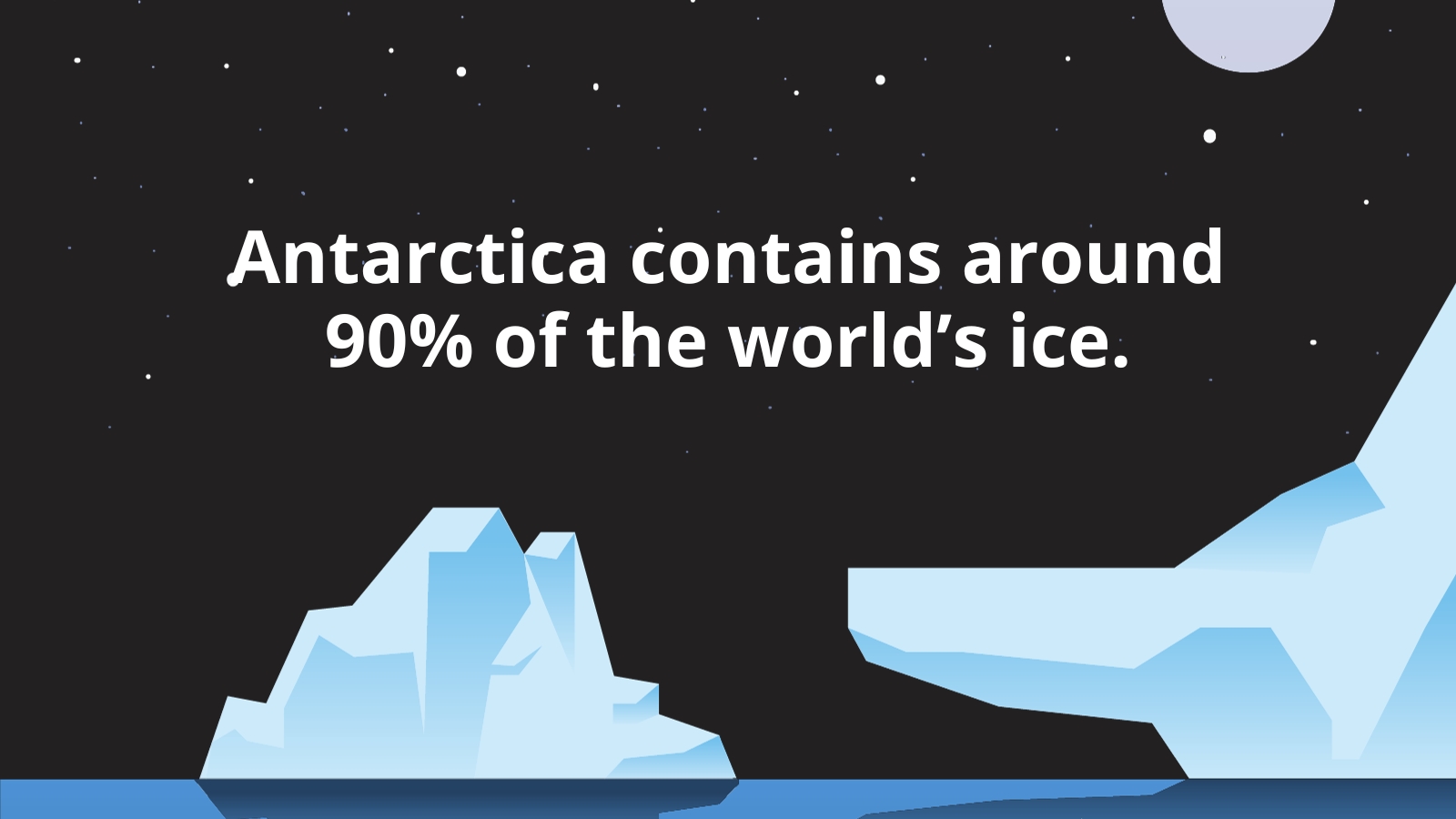Antarctica is a fascinating and unique continent, known for its extreme conditions and pristine environment. While it’s often associated with snow and penguins, most of us don’t know much more than that! Interested? We’ve put together this list of 25 fun facts about Antarctica for kids!
Antarctica is the coldest, driest, and windiest continent on Earth.
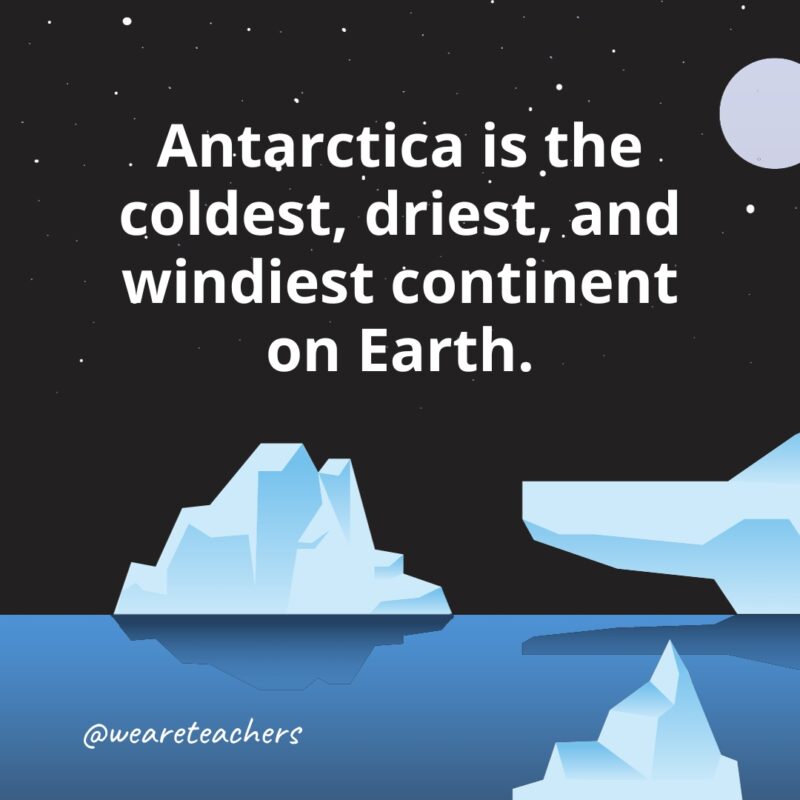
During the coldest months, mean temperatures range from −4 to −22 °F (−20 to −30 °C) on the coast and −40 to −94 °F (−40 to −70 °C) inland.
Antarctica has a high altitude.
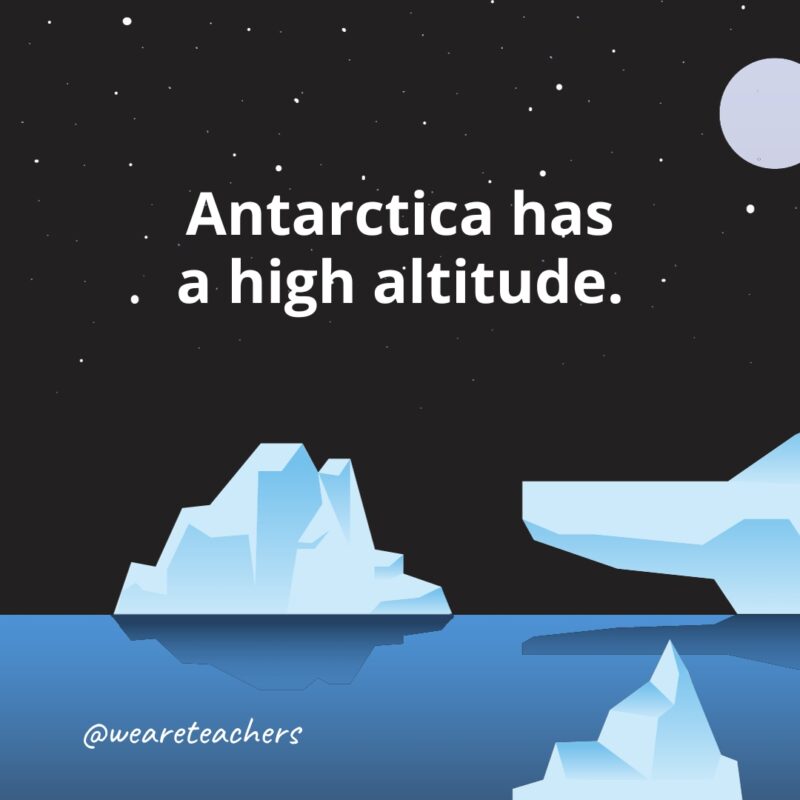
Antarctica is the highest continent, with an average elevation of about 7,500 feet (2,300 meters) above sea level.
Located in Antarctica, the South Pole is the southernmost point on Earth.
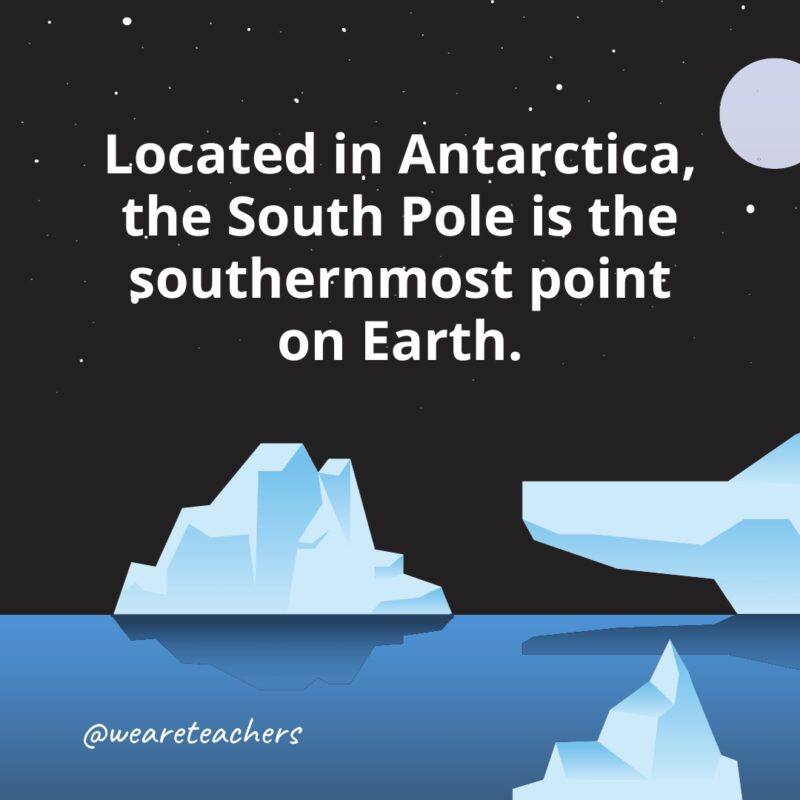
You can’t get any farther south!
Of all the continents, Antarctica is only bigger than Europe and Australia.
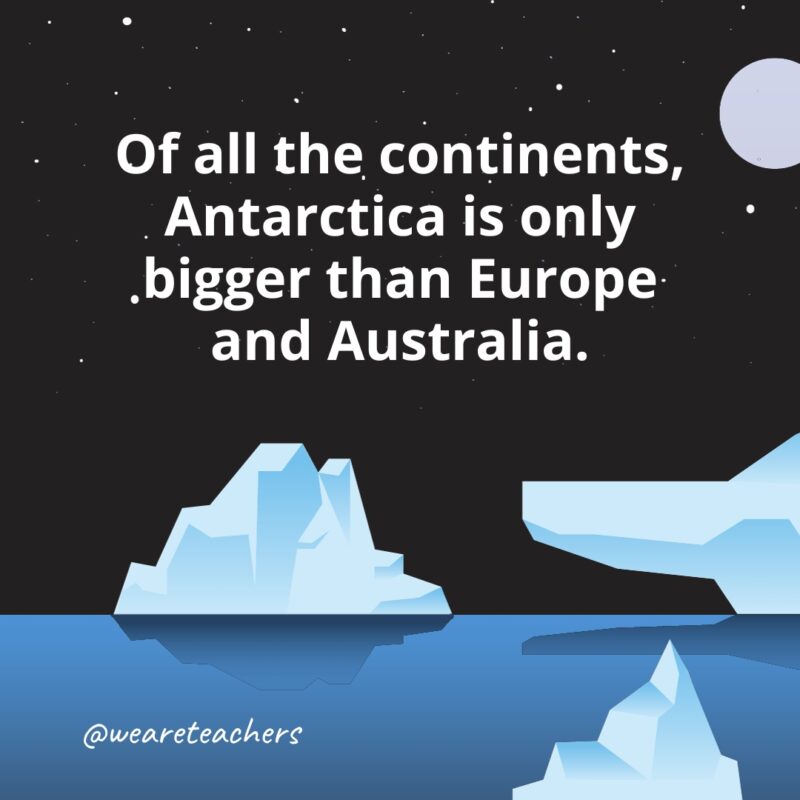
As the fifth-largest continent, Antarctica covers an area of approximately 14 million square kilometers (5.4 million square miles).
Antarctica is an island.
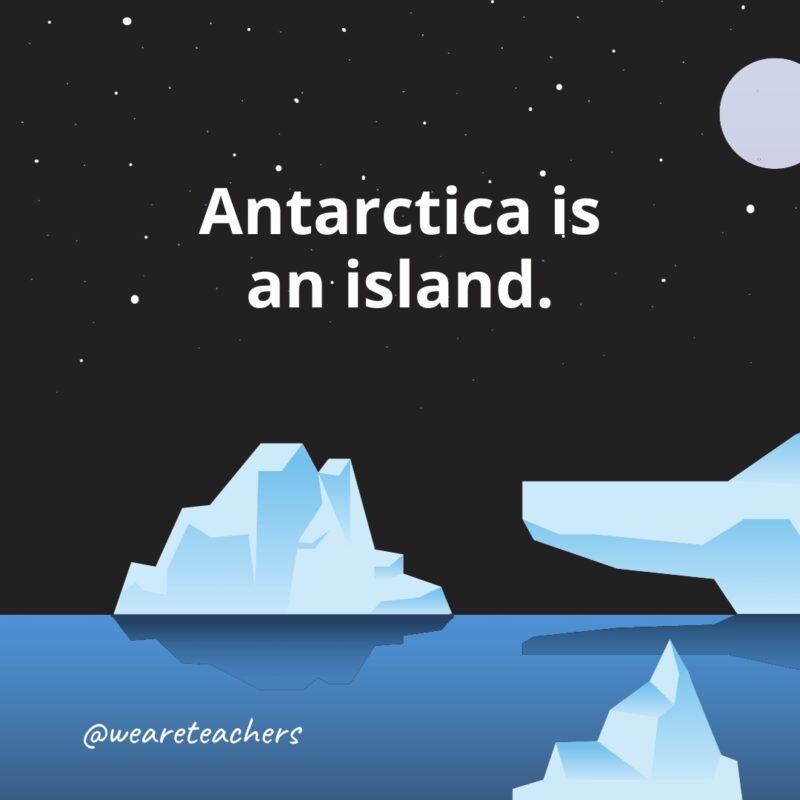
The Southern Ocean (aka the Antarctic Ocean) completely surrounds the continent.
There is hidden water in Antarctica.
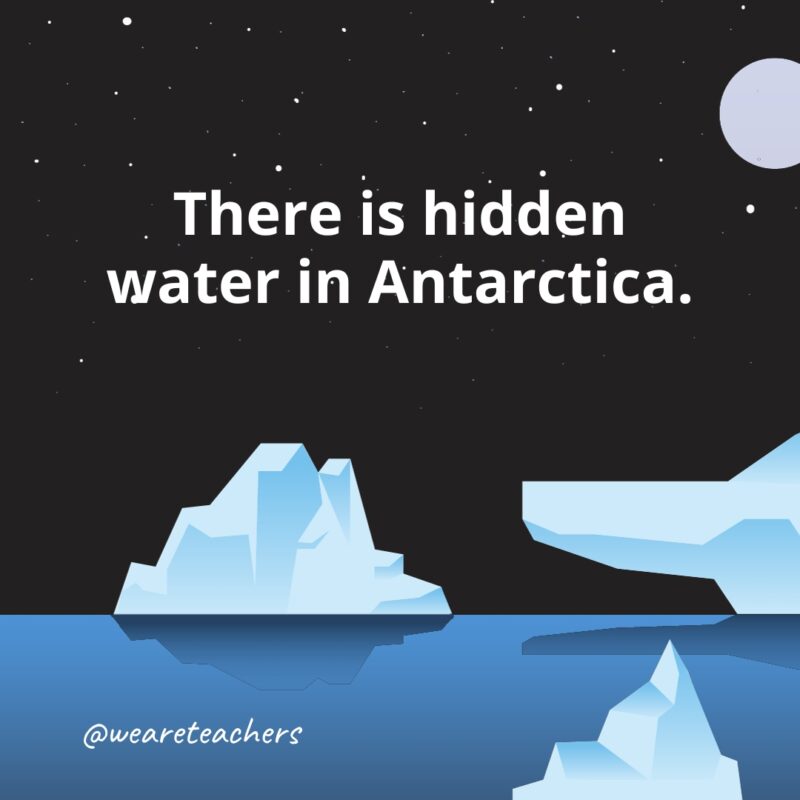
Approximately 70% of the world’s fresh water is located in Antarctica, but it’s stored in its ice!
Antarctica contains around 90% of the world’s ice.
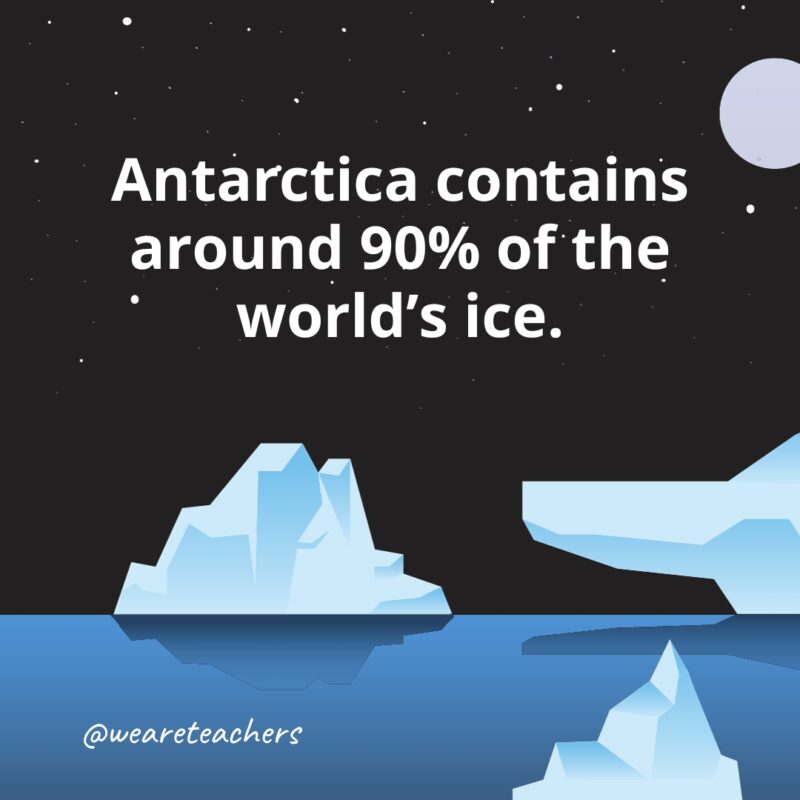
The Antarctic ice sheet is the largest single mass of ice on Earth.
Antarctica is a polar desert.
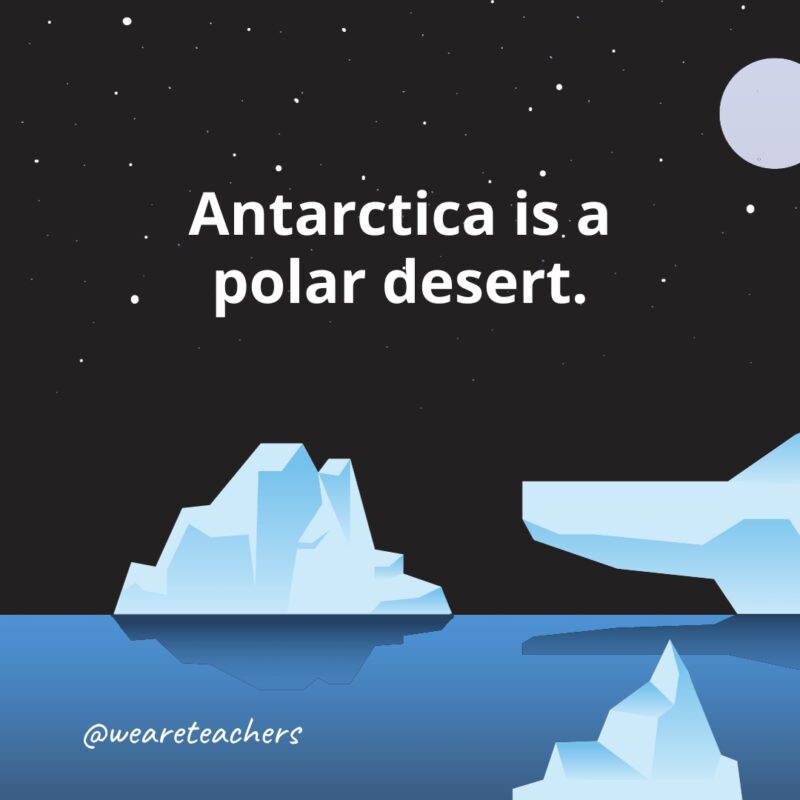
Despite its extreme conditions, it receives very little precipitation.
The lowest temperature ever recorded on Earth was in Antarctica.
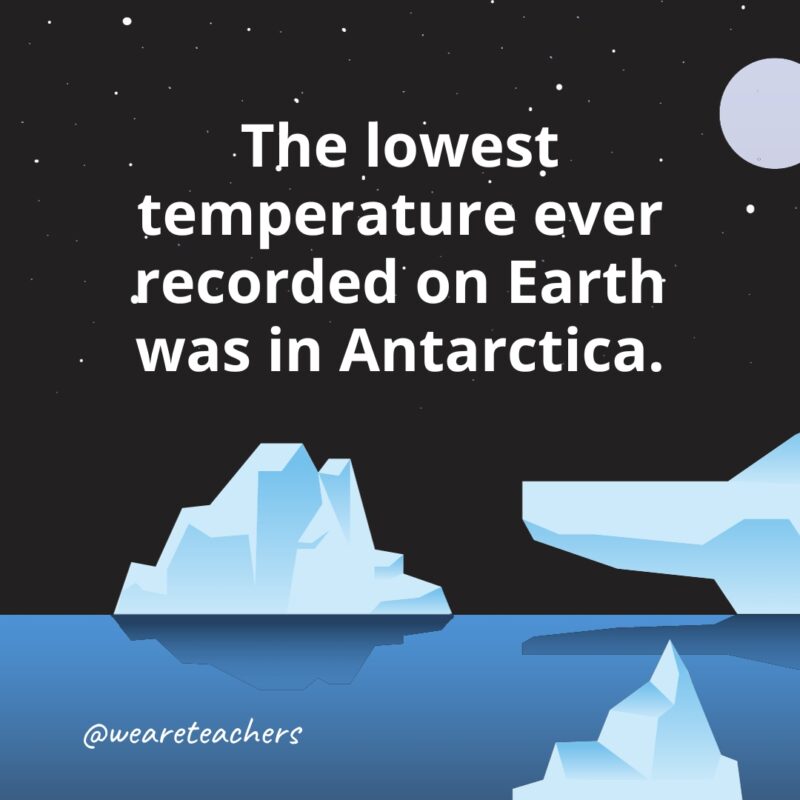
The lowest natural temperature ever recorded on Earth was at Antarctica’s Soviet Union Vostok Station, where it reached a bone-chilling -128.6°F (-89.2°C) in 1983.
Antarctica was once part of a supercontinent called Gondwana.
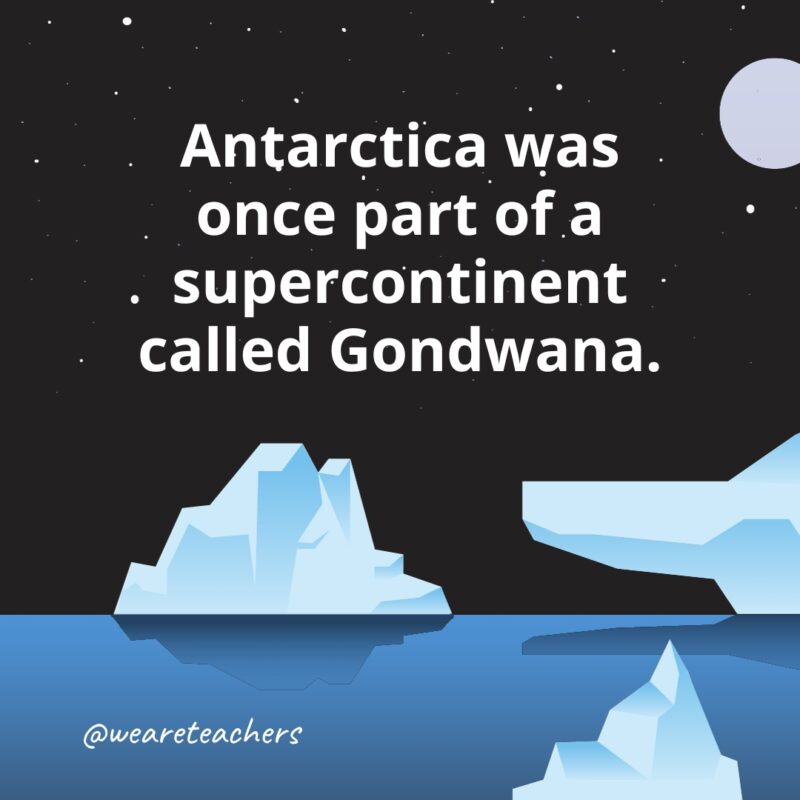
It drifted to its current location over millions of years.
Antarctica has no native human population.
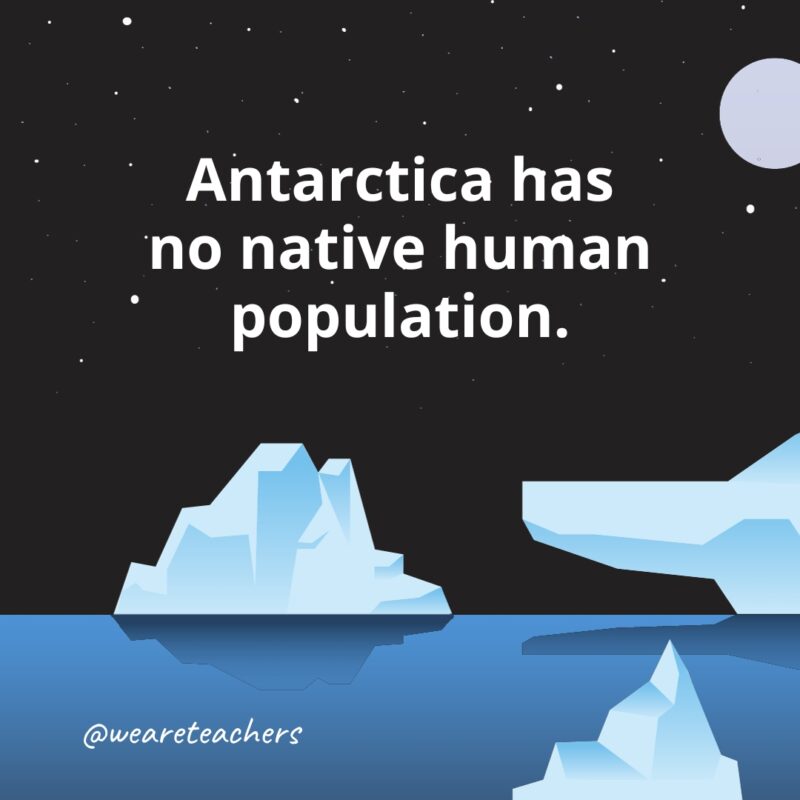
However, research scientists from various countries inhabit various research stations throughout the continent.
Emperor penguins inhabit Antarctica.
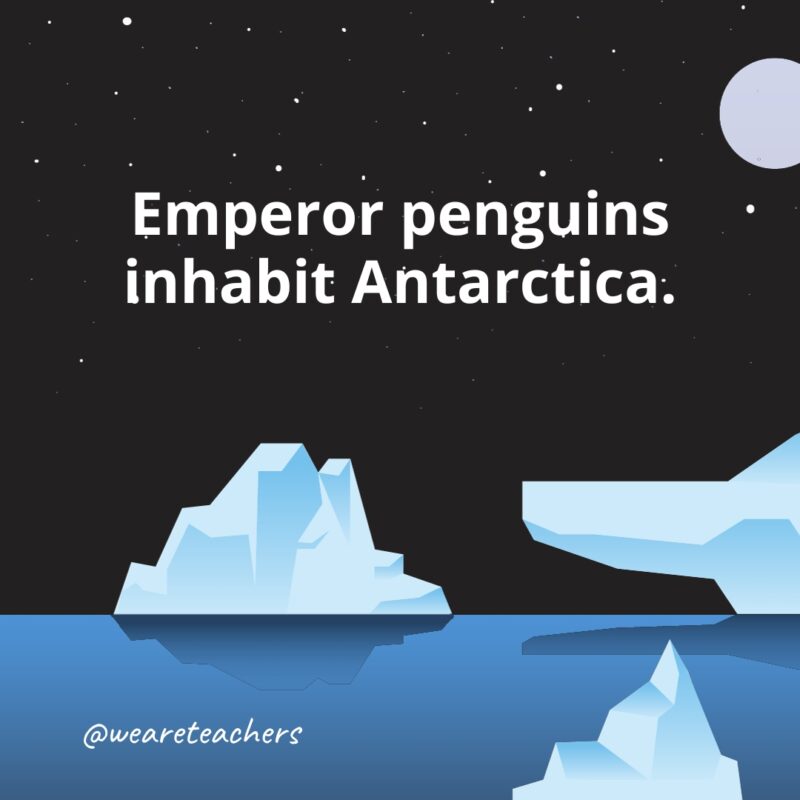
The largest penguin species are known for their distinctive waddle.
Antarctica experiences extreme temperature variations.
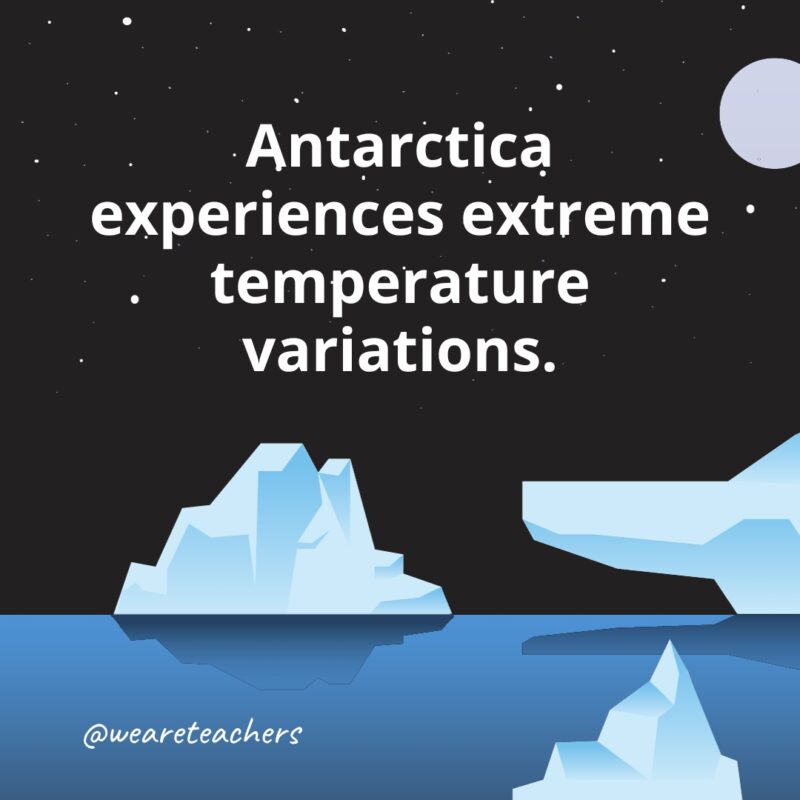
Summer temperatures range from -20°F to 14°F (-29°C to -10°C) and winter temperatures drop much lower.
Antarctica has several active volcanoes.
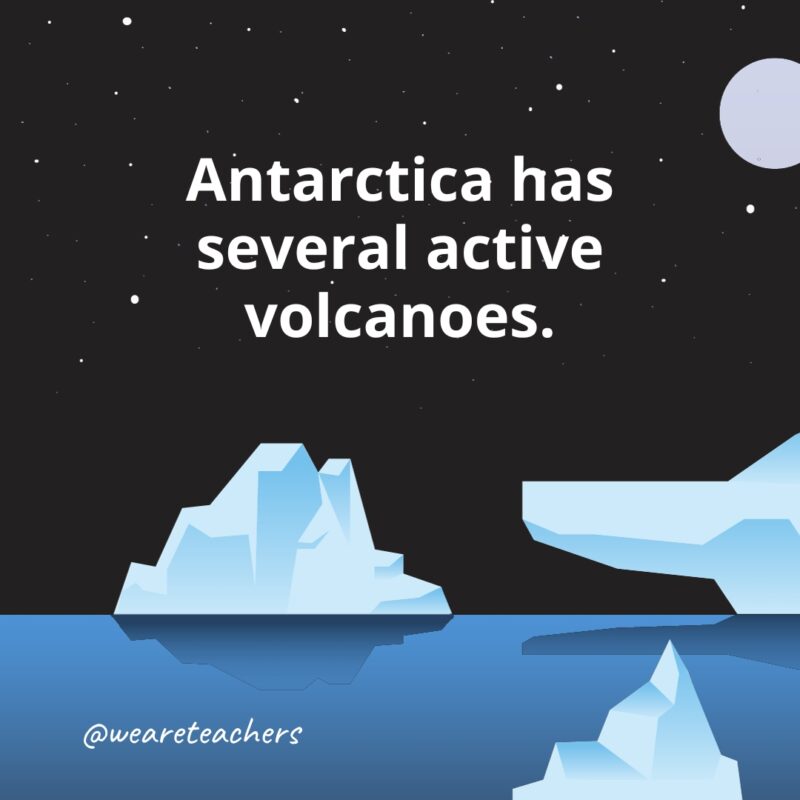
Mount Erebus is the most famous.
The ozone hole, which was discovered in the 1980s, is most prominent over Antarctica.
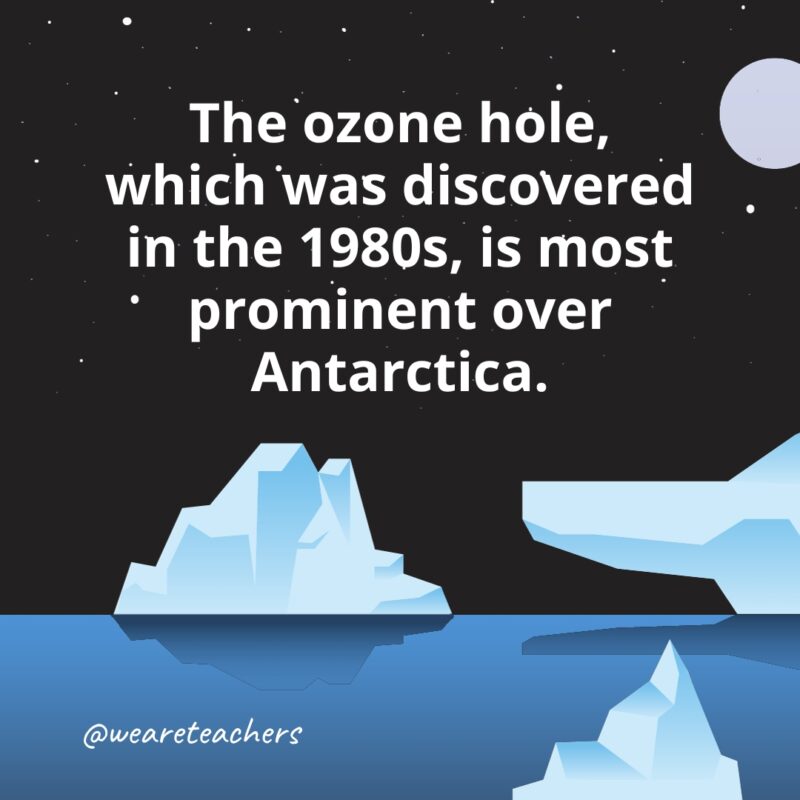
Human-made chemicals caused a chemical reaction that caused the hole.
The Antarctic Treaty was signed in 1959.
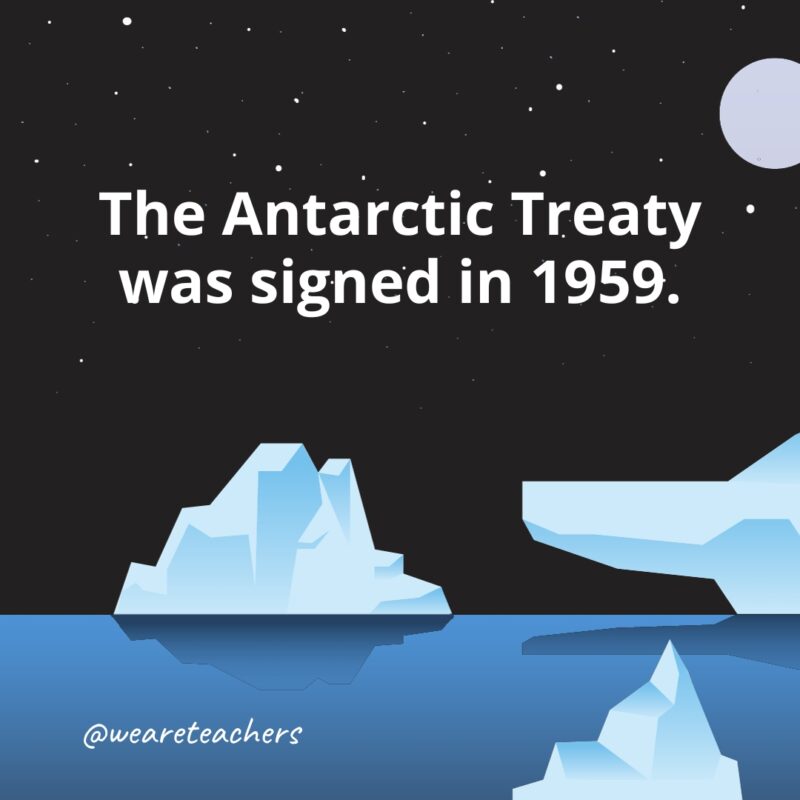
It designates Antarctica as a region for peaceful scientific cooperation and bans military activity, mineral mining, and nuclear testing.
Antarctica’s coastline is dotted with numerous ice shelves.
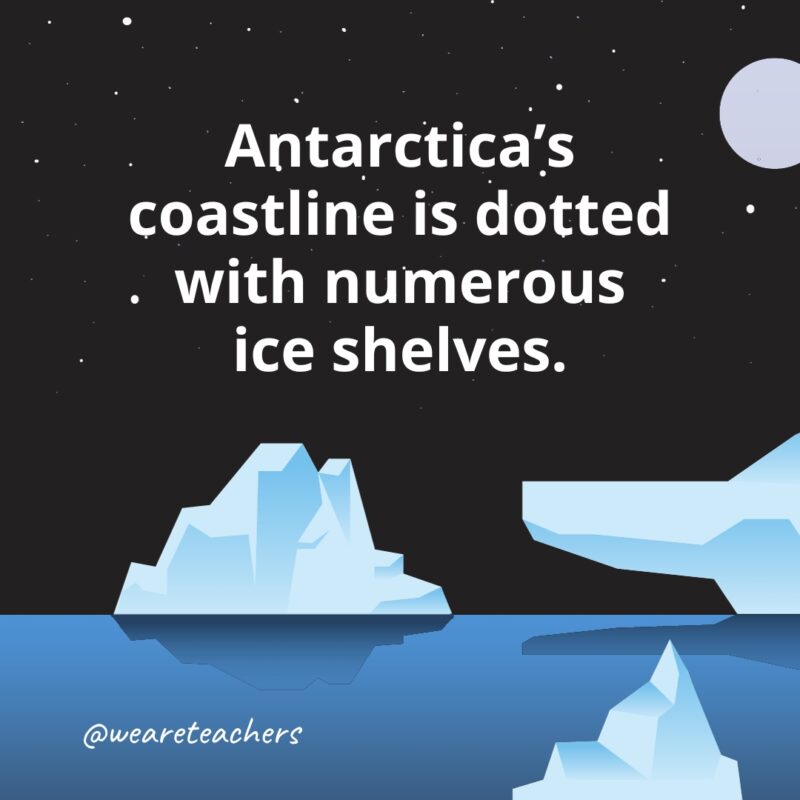
Some of them have been breaking apart due to climate change.
The Dry Valleys in Antarctica are some of the driest places on Earth.
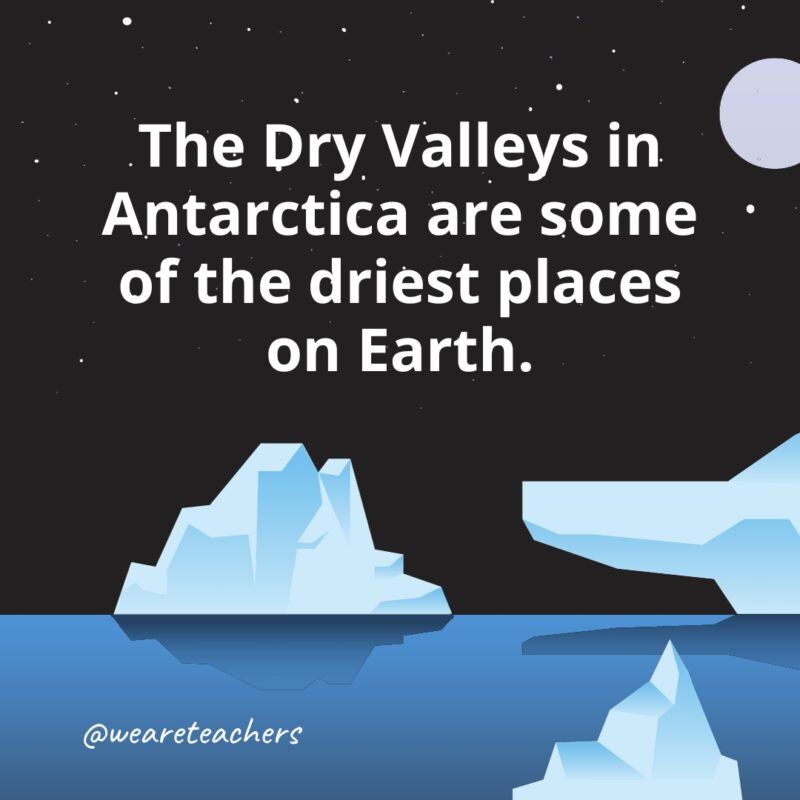
They have not seen significant rainfall for nearly 2 million years.
You can see the southern lights, or aurora australis, in Antarctica.
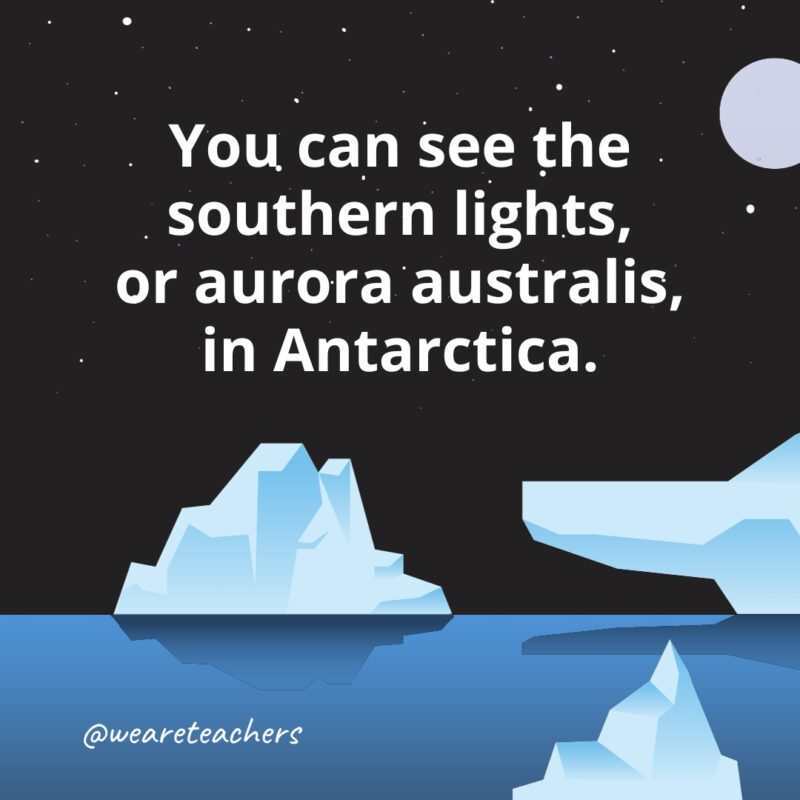
Solar particles interacting with the Earth’s magnetic field cause the stunning natural light display.
Lake Vostok is one of the largest subglacial lakes in Antarctica.
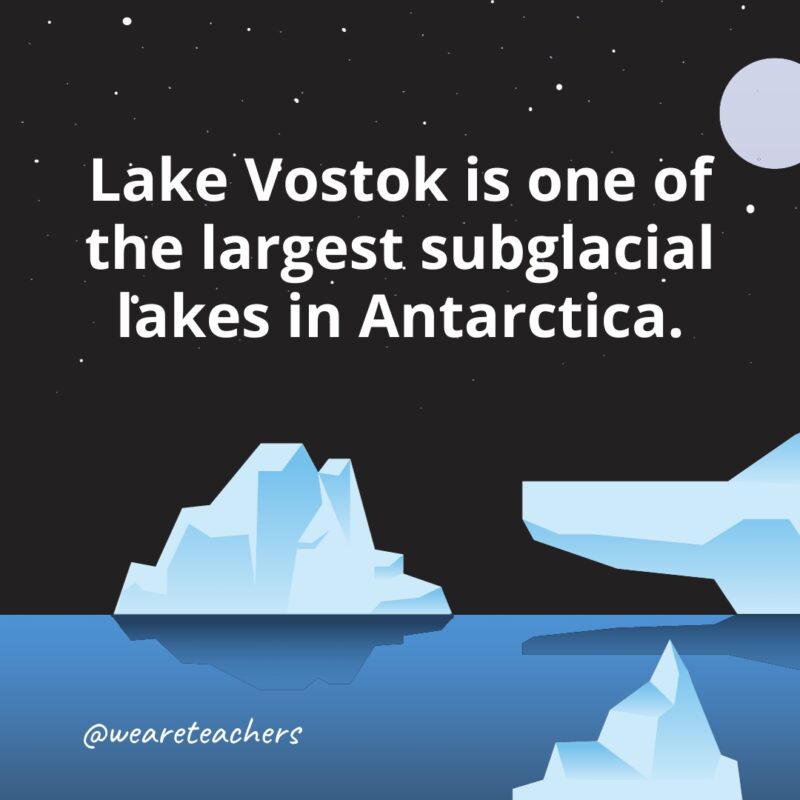
Buried under more than 2 miles of ice, it has unique ecosystems of extremophiles living in extreme cold and darkness.
Antarctica holds records for wind speeds.
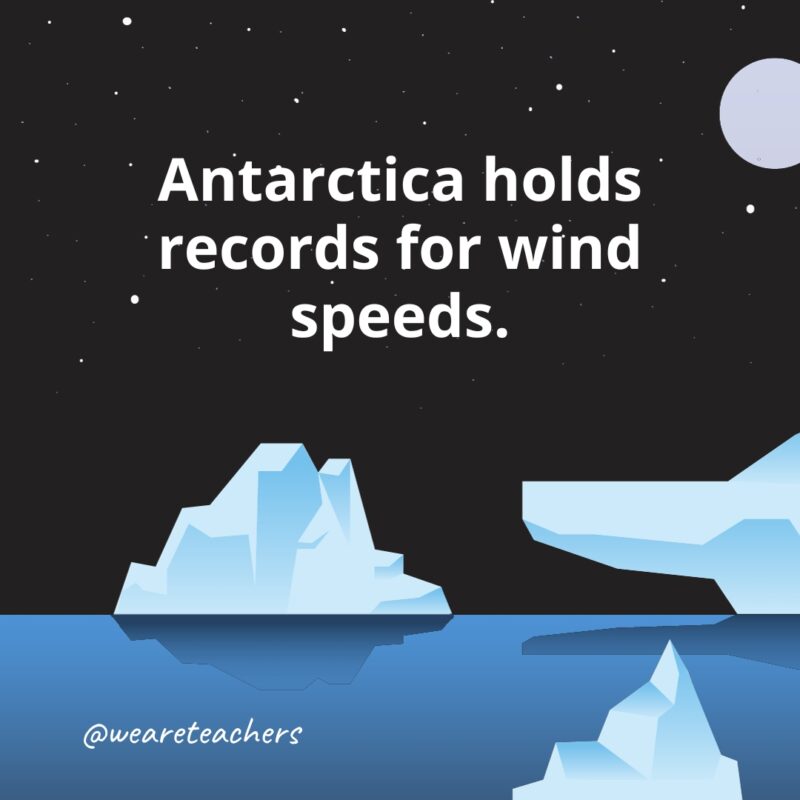
Reports state that gusts exceed 200 mph (320 km/h).
The Transantarctic Mountains divide Antarctica.
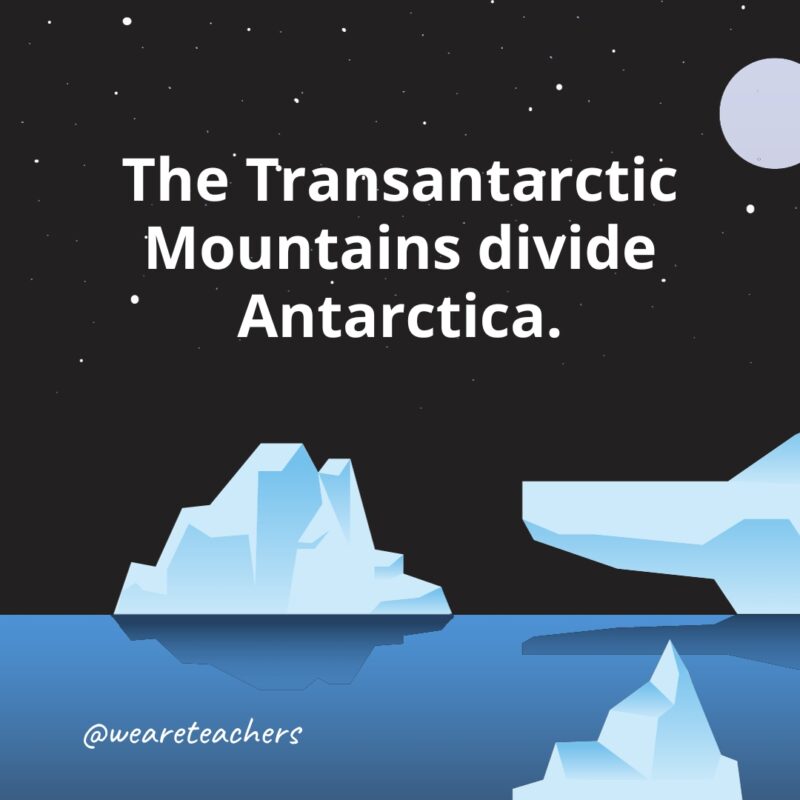
West Antarctica contains both ice and land while East Antarctica contains mostly ice.
Norwegian explorer Roald Amundsen made the first confirmed landing in Antarctica.
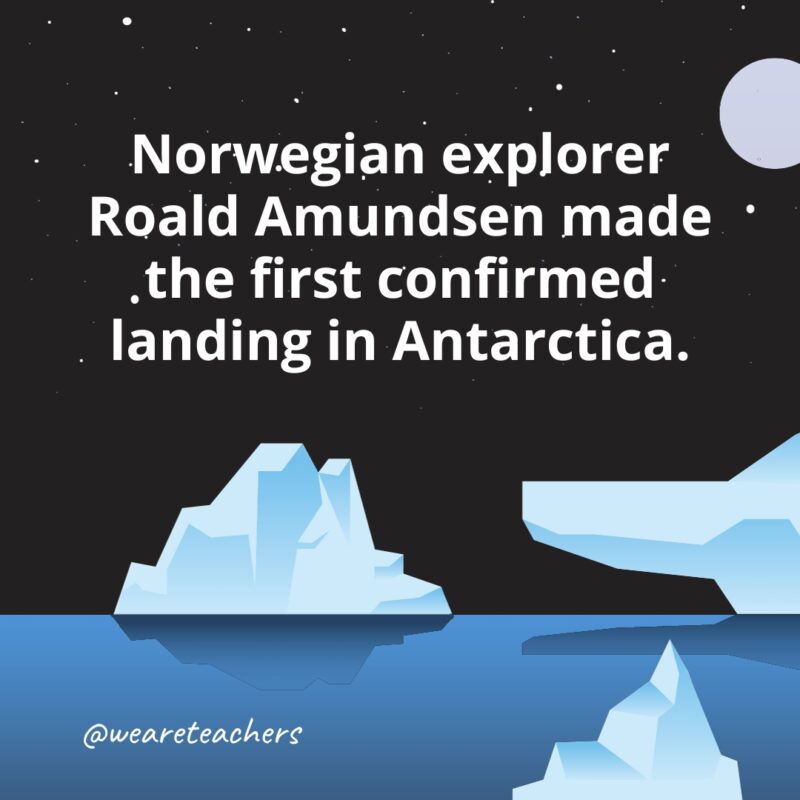
British explorer Robert Falcon Scott followed soon after.
There are no native land mammals in Antarctica.
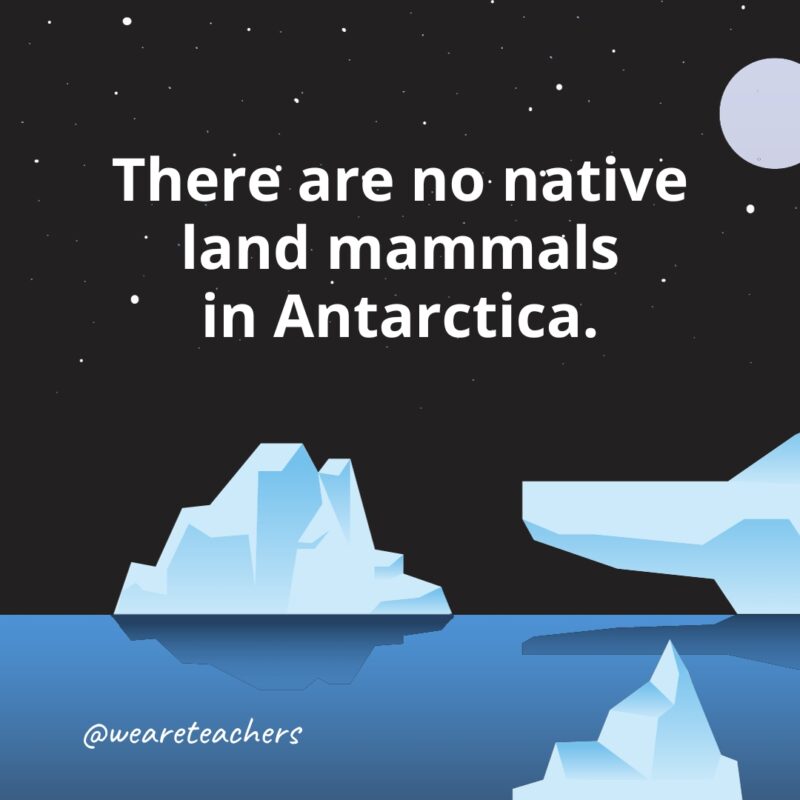
Marine mammals like seals and whales, however, are common in its surrounding waters.
We’ve learned a lot about climate change from Antarctica.
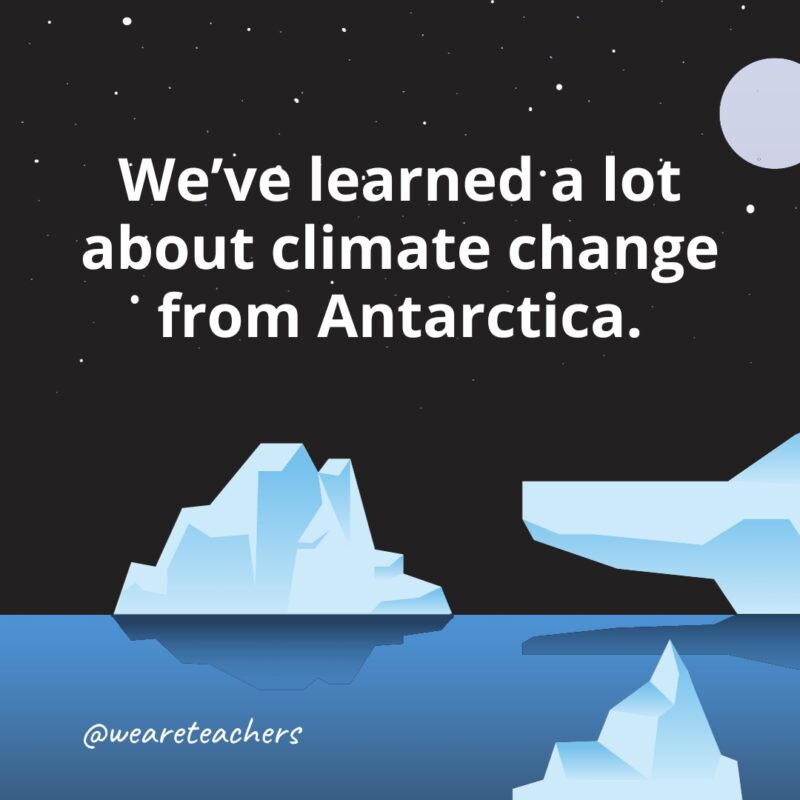
Despite its harsh conditions, Antarctica has provided valuable insights into climate change and the Earth’s history through ice-core drilling and scientific research.
Did you love these fun facts about Antarctica for kids? Check out these 30 Astonishing Grand Canyon Facts for Kids!
For more articles like this, be sure to subscribe to our newsletters!

